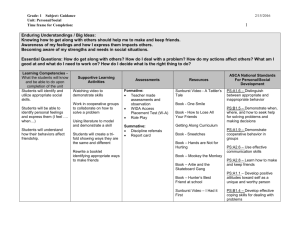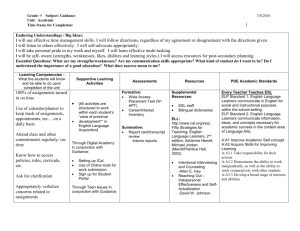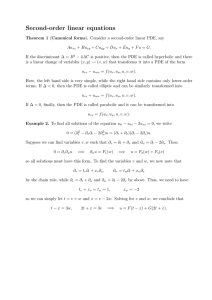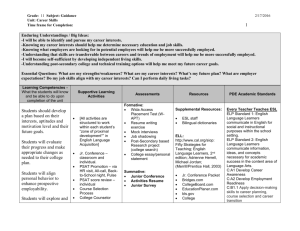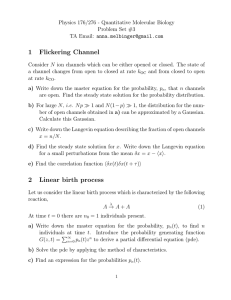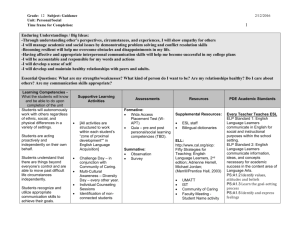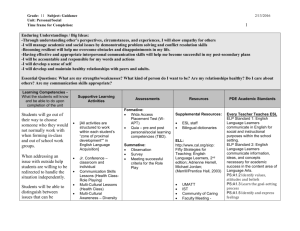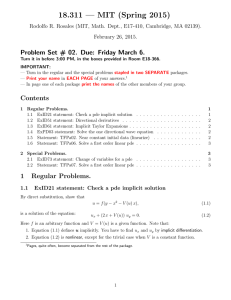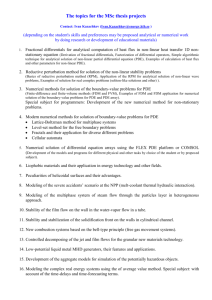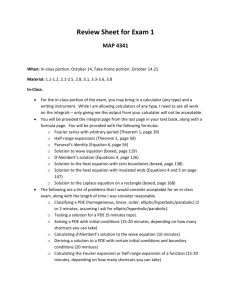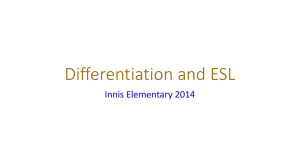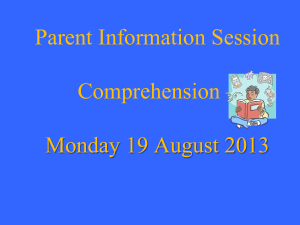Enduring Understandings / Big Ideas: We are one world: Reading
advertisement
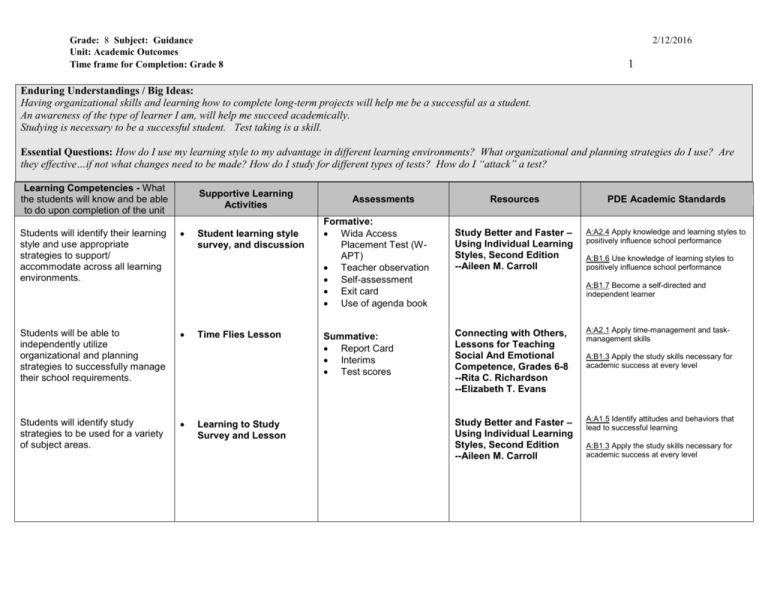
Grade: 8 Subject: Guidance Unit: Academic Outcomes Time frame for Completion: Grade 8 2/12/2016 1 Enduring Understandings / Big Ideas: Having organizational skills and learning how to complete long-term projects will help me be a successful as a student. An awareness of the type of learner I am, will help me succeed academically. Studying is necessary to be a successful student. Test taking is a skill. Essential Questions: How do I use my learning style to my advantage in different learning environments? What organizational and planning strategies do I use? Are they effective…if not what changes need to be made? How do I study for different types of tests? How do I “attack” a test? Learning Competencies - What the students will know and be able to do upon completion of the unit Supportive Learning Activities Students will identify their learning style and use appropriate strategies to support/ accommodate across all learning environments. Students will be able to independently utilize organizational and planning strategies to successfully manage their school requirements. Students will identify study strategies to be used for a variety of subject areas. Student learning style survey, and discussion Time Flies Lesson Learning to Study Survey and Lesson Assessments Formative: Wida Access Placement Test (WAPT) Teacher observation Self-assessment Exit card Use of agenda book Summative: Report Card Interims Test scores Resources PDE Academic Standards Study Better and Faster – Using Individual Learning Styles, Second Edition --Aileen M. Carroll A:A2.4 Apply knowledge and learning styles to positively influence school performance A:B1.6 Use knowledge of learning styles to positively influence school performance A:B1.7 Become a self-directed and independent learner Connecting with Others, Lessons for Teaching Social And Emotional Competence, Grades 6-8 --Rita C. Richardson --Elizabeth T. Evans A:A2.1 Apply time-management and taskmanagement skills Study Better and Faster – Using Individual Learning Styles, Second Edition --Aileen M. Carroll A:A1.5 Identify attitudes and behaviors that lead to successful learning A:B1.3 Apply the study skills necessary for academic success at every level A:B1.3 Apply the study skills necessary for academic success at every level Grade: 8 Subject: Guidance Unit: Academic Outcomes Time frame for Completion: Grade 8 2/12/2016 2 Supplemental Resources: ESL staff Bilingual dictionaries ELL: http://www.cal.org/siop: Fifty Strategies for Teaching; English Language Learners, 2nd edition; Adrienne Herrell, Michael Jordan; (Merrill/Prentice Hall, 2003) Every Teacher Teaches ESL ELP Standard 1: English Language Learners communicate in English for social and instructional purposes within the school setting. ELP Standard 2: English Language Learners communicate information, ideas, and concepts necessary for academic success in the content area of Language Arts. Grade: 8 Subject: Guidance Unit: Academic Outcomes Time frame for Completion: Grade 8 2/12/2016 3 *Zone of Proximal Development: That area between what the student is capable of at the moment and the point you want the student to reach next (Vygotsky, 1978) Stages of Second Language Acquisition: (Hill, J., Flynn, K., 2006) Stage Characteristics Approximate Time Frame Teacher Prompts Preproduction PDE: Entering The student Has minimal comprehension Does not verbalize Nods “yes” and “no” Draws and points 0-6 months Show me… Circle the… Where is…? Who has…? Early Production PDE: Beginning The student Has limited comprehension Produces one- or two-word responses Participates using key words and familiar phrases Uses present-tense verbs The student Has good comprehension Can produce simple sentences Makes grammar and pronunciation errors Frequently misunderstands jokes The Student Has excellent comprehension Makes few grammatical errors The student has a near native level of speech. 6 months to 1 year Yes/no questions Either/or questions One-or two-word answers Lists Labels 1-3 years Why…? How…? Explain… Phrase or short-sentence answers 3-5 years What would happen if…? Why do you think…? 5-7 years Decide if… Retell… Speech Emergence PDE: Developing Intermediate Fluency PDE: Expanding Advanced Fluency: PDE: Bridging
